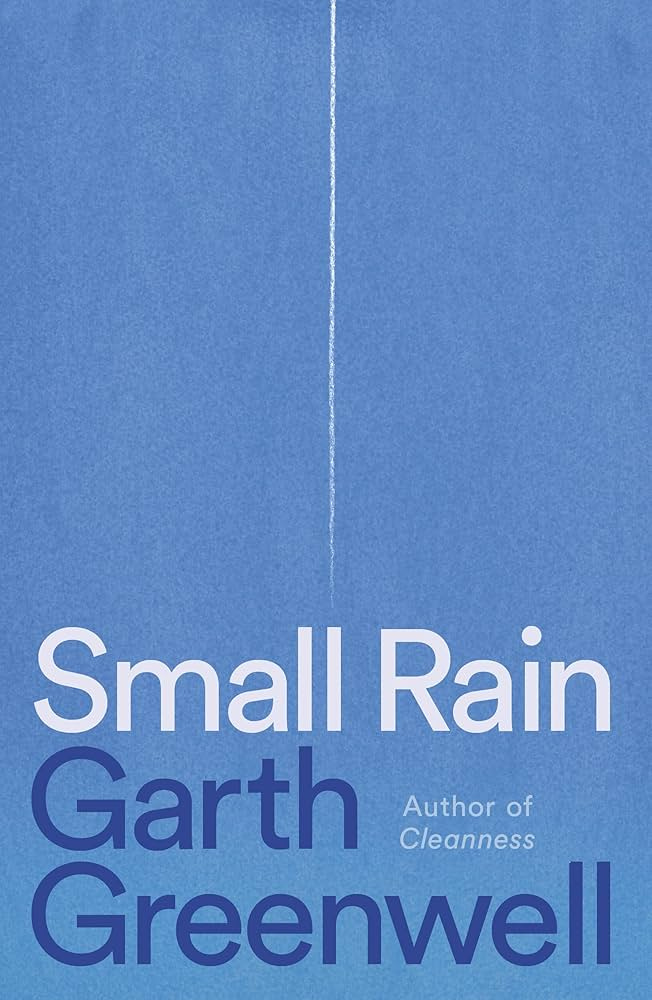Review: "Small Rain" - A Journey Through Illness and Love
In Garth Greenwell's latest autofiction, the author confronts brutal truths about the human experience.
As fall approaches and colder temperatures take over, I wanted to snuggle up with a book encouraging introspection and self-reflection. Garth Greenwell's "Small Rain" was just the right choice. To add to the atmosphere, I read it in Seattle, where I didn't see the sun, was soaked in a constant mist, and always had a warm beverage nearby. This book completed the scene.
"Small Rain" departs from Greenwell’s previous works and explores pain, vulnerability, and the quiet strength of ordinary love. His earlier novels, "What Belongs to You" and "Cleanness," were celebrated for their frank depictions of desire and sexuality. "Small Rain" takes a dramatically different approach, focusing on the intimate experience of illness and the transformative power of compassion.
Set against the backdrop of the COVID-19 pandemic, the novel unfolds within the confines of a hospital room, where the unnamed narrator grapples with a life-threatening aortic tear. Greenwell's decision to strip away the sexual exploration that characterized his earlier works allows for a raw and unflinching examination of physical pain and emotional vulnerability. This shift in focus is not merely a change in subject matter but a bold artistic choice. I don’t want to say this is Greenwell’s most mature novel because that would dismiss novels of sex as the opposite, but this is the moment we see him turn his focus from the carnal, sensual to the spiritual and chaste .
What sets "Small Rain" apart is Greenwell's meticulous attention to detail and willingness to linger on the mundane aspects of illness and recovery. The author's painstaking descriptions of medical procedures, the rhythms of hospital life, and the narrator's physical sensations might seem excessive at first glance. However, this level of detail forms the heart of the novel's power. Greenwell creates a sense of empathy and understanding by immersing the reader in the minute-by-minute experience of pain and healing.
The novel's deliberate pacing and focus on seemingly trivial details serve a greater purpose. I cannot stress this enough: you will blow through this novel fast while it moves at a glacial pace. They mirror the altered perception of time accompanying severe illness, where each moment can feel stretched to infinity. Greenwell described each nurse that came in through a revolving door as the minutes and hours passed in the hospital, as the narrator's focus zoomed in and out of the room - oscillating between what was happening in front of him and what was happening in his home, miles away - I was in tune with the narrator's experience. The mundanity becomes a lens through which we can examine the extraordinary nature of human endurance and the quiet heroism of facing mortality.
At its core, "Small Rain" is a meditation on love in its most ordinary form. The narrator's relationship with his partner, L, takes center stage not through grand gestures or passionate encounters but through small acts of care and shared moments of vulnerability. The tenderest moments are when L visits him, a kiss over a mask, and an expression of love through a term of endearment. Greenwell's portrayal of this love story amidst pain and uncertainty is a testament to the strength of human connection in the face of adversity.
Interestingly, the themes explored in "Small Rain" resonate deeply with Greenwell's recent essay in The Yale Review, in which he discusses the importance of engaging with challenging and uncomfortable aspects of human nature. Reading this essay, I couldn't help but think about someone's aversion to picking up "Small Rain ." They'd bristle about a same-sex couple, lament at the mention of COVID-19, and object to the medical system and the worries it causes. While the essay focuses on the role of "filth" and transgression in moral education, "Small Rain" approaches a similar idea differently. Through the immersion of the intimate details of illness and vulnerability, Greenwell cultivates a profound compassion and understanding for others.
In his essay "Small Rain," Greenwell argues for the transformative power of confronting brutal truths about the human experience. Where his essay suggests that engaging with "filth" can lead to moral growth, "Small Rain" demonstrates how facing pain and vulnerability can deepen our capacity for empathy and connection. The novel's unflinching examination of illness and its impact on relationships is a powerful tool for fostering compassion and breaking down the barriers that often separate us from the experience of others.
"Small Rain" explores the depths of human experience and departs from the explicit sexuality of his previous works. This autofiction focuses on the quietness of isolation, the intensity of pain, the frailty of health, and ordinary love. Through his attention to detail and celebration of mundane yet profound moments, "Small Rain" offers a moving meditation on resilience, compassion, and the enduring power of human connection. Reading it is an exercise in compassion and empathy; we all could use a little exercise now.





